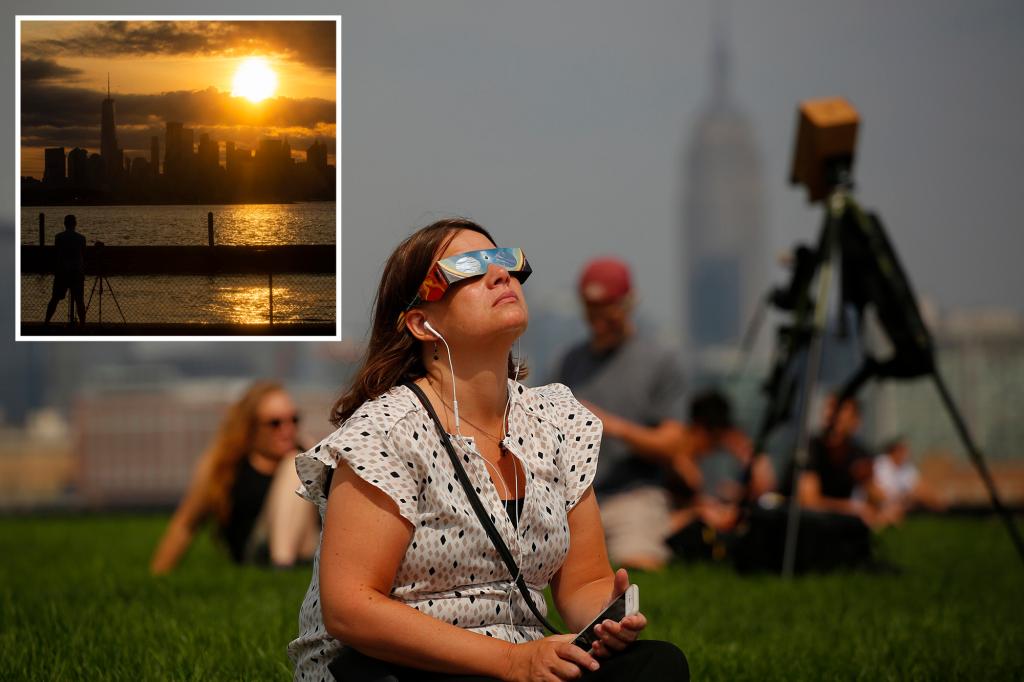On the day of the eclipse, New Jersey is anticipating seeing nearly 90% totality as the moon moves between the sun and Earth. Although the state will not experience a total solar eclipse, the event is still being treated as a significant celestial occurrence. The closest area to New Jersey that will witness a total eclipse is Buffalo, New York. The last total eclipse visible from the New York metro area was in 2017, and residents will have to wait until 2079 for the next opportunity to witness a similar event.
The best time to view the eclipse in New Jersey is between 2:10 p.m. and 4:36 p.m., according to NASA. Viewers can expect to observe a crescent shape as around a third of the moon covers the sun shortly before 3 p.m. By 3:25 p.m., the sun will be 90% covered by the moon before gradually reemerging, with the eclipse ending by 4:36 p.m. It is essential to wear protective eyewear to prevent any damage to the eyes while witnessing the eclipse.
Several locations across New Jersey are hosting solar eclipse parties to celebrate the event. The Liberty Science Center in Jersey City is hosting what they claim to be the largest astronomy party in the state, starting at 1 p.m. Attendees will have the opportunity to view the eclipse through telescopes on-site, weather permitting, as well as watch a live webcast from NASA. The Morris Museum Astronomical Society and Rowan University Edelman Planetarium are also offering telescope viewings for those interested in observing the eclipse.
For those who prefer to view the eclipse from the beach, the Gateway National Recreation Area in Sandy Hook is hosting a beach party for the event, complete with free glasses for attendees. Individuals can still obtain free solar eclipse glasses at various locations across New Jersey, including all Warby Parker stores and local libraries like the Sussex County and Caldwell libraries. These glasses help protect the eyes during the event and are vital to prevent any vision damage.
Most eclipse glasses are similar in appearance to 3D movie glasses but are designed to protect the eyes rather than enhance visual effects. Optometrists strongly advise against looking directly at the sun without proper eye protection, as this can lead to blind spots or blurry vision. The darkness of the eclipse may tempt some to look without glasses, but the potential damage to the eyes is not worth the risk. It is crucial to prioritize eye protection while enjoying the celestial spectacle.


